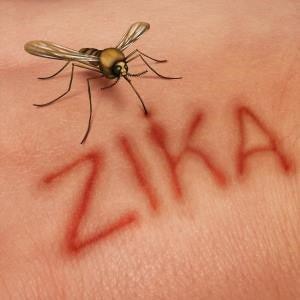Everyday information on Zika—a virus that could cause abnormally small brain size, and even death, in babies—grows and changes. How big of a risk is the virus and what can you do? We’ve rounded up what we know so far:
Where is the virus now?
The World Health Organization (WHO) has said that Zika virus is “spreading explosively,” and that an estimated three to four million people could be exposed in the next year, according to the New York Times. The WHO is holding an emergency meeting on Monday to determine whether Zika should be deemed an international public health emergency.
Currently, the Zika virus is circulating in more than 20 countries, and can be found in the following locations: Barbados, Bolivia, Brazil, Cape Verde, Colombia, Dominican Republic, Ecuador, El Salvador, French Guiana, Guadeloupe, Guatemala, Guyana, Haiti, Honduras, Martinique, Mexico, Panama, Paraguay, Puerto Rico, Saint-Martin, Samoa, Suriname, United States Virgin Islands and Venezuela.
In the continental US, there have been 31 reported cases of Zika virus in 11 states and the District of Columbia, but these cases have all been acquired while travelling.
So far, there have been no locally-transmitted cases of Zika virus in the US—meaning no one in the US who has the virus got it in the US. However, the mosquito that transmits the virus, called the Aedes aegypti, is present in some of the warmer states, and officials from the Centers for Disease Control (CDC) say it’s possible, and even likely, that there will be local outbreaks of Zika virus, but measures are being taken to prevent widespread epidemics.
In Canada, there have been a few reported cases of Zika virus contracted while travelling, but infected mosquitos are highly unlikely to appear in Canada.
Who is at risk?
Zika virus is spread by mosquitoes. If you live in Canada or the US and you haven’t travelled to one of the affected areas, your risk is virtually zero. (There has been a case of suspected sexual transmission, and another case of Zika being found in semen two weeks after a man had the virus. According to a CDC official, there is the “plausibility” of spread by sexual transmission, but so far science shows the virus is primarily transmitted by mosquitoes.)
If you have travelled to an affected area and you’re not pregnant, the long-term risk is low. You may contract the virus, but symptoms are typically mild and last only a few days. That said, the CDC is working with health officials in Brazil to investigate a possible link between the Zika virus and Guillain-Barre syndrome, a neurological disorder that can cause a person’s immune system to attack nerve cells, which can lead to muscle weakness and paralysis.
The biggest risk is for pregnant women who are living in, or are travelling to, one of the affected areas, because the virus is linked to birth defects. If you are pregnant or plan to become pregnant, the Public Health Agency of Canada and the CDC recommend postponing travel plans. If you must travel, take extreme caution against mosquitoes.
How strong is the link to birth defects?
- Because of an increase in cases of microcephaly in Brazil in a timeframe that coincides with the rapid increase in Zika virus transmission, it is thought that a mother who is infected with the virus can pass it to her fetus, possibly causing birth defects. Microcephaly is characterized by a small head and underdeveloped brain and can be fatal.
- The link between Zika and microcephaly remains unproven, but research is ongoing. Brazilian health officials have analyzed more than 700 suspected cases of microcephaly linked to Zika virus but can only confirm 270. What this means, exactly, is hard to say. “There are many ways to study this kind of issue, and try to clarify how strong a risk factor of Zika virus infection would be for a pregnancy complication, and so both the experience the Brazilians have had and prospective studies are very important,” said Anne Schuchat, the principal deputy director of the CDC, at a recent media briefing. “The CDC is working closely with Brazil and other countries and the rest of the community that works on birth defects day in and day out to try to really understand this.”
- Schuchat also said that while it’s believed the risk of microcephaly is highest in the first trimester of pregnancy, it is unknown what the effects might be if the virus were contracted later on in pregnancy. She also acknowledged the possibility that the virus could cause other birth defects in addition to microcephaly.
- It’s unknown whether a pregnant woman needs to experience symptoms for it to affect her fetus, but it’s believed that the virus can only affect the fetus for the amount of time that the virus is active in the mother, which would be up to about a week.
What’s the advice for pregnant women who have travelled to an affected area?
- See your doctor, tell them where you’ve travelled and reported any symptoms you may have had. Widespread testing isn’t available but can be done in special laboratories.
- CDC has published guidelines for obstetricians regarding Zika virus and says that pregnant women who travel to an affected area and who report two or more symptoms consistent with the Zika virus should be tested.
- The CDC says that expectant women who test positive for Zika should be monitored with regular ultrasounds and referred to a specialist to follow the development and anatomy of the fetus.
- The CDC has also released recommendations regarding the testing of newborns whose mothers may have been exposed to the Zika virus during pregnancy. In some cases, testing of the infant is urged, even if microcephaly is not present, to determine whether the baby should be monitored for other potential birth defects, such as hearing loss and impaired vision.
Will there be a vaccine?
- A vaccine is currently in development by US and Canadian scientists and could be available for emergency use as early as the end of the year.
Other developments
- Canadian Blood Services says it will refuse donations from travellers to areas where the Zika virus has become widespread, even though the risk of transmitting the virus through blood transfusion is low.
- Several Canadian airlines, including Air Canada and WestJet, say they will let travellers reschedule bookings or obtain refunds for cancelled flights in light of Zika concerns. This comes after American and United Airlines in the US made similar announcements.
Source: http://www.todaysparent.com/










